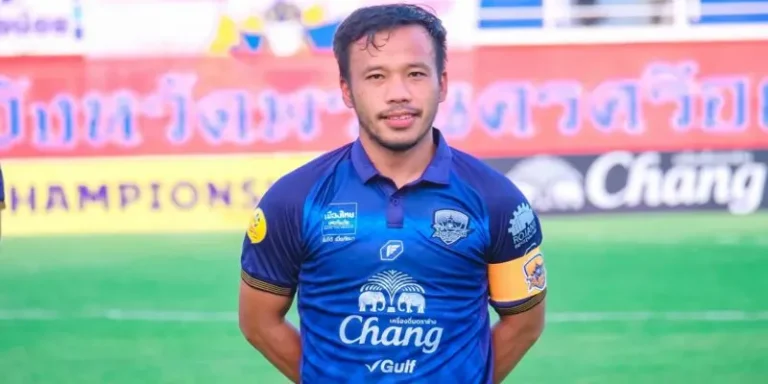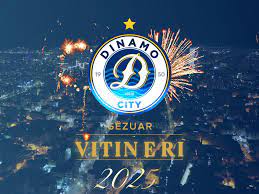Few football nations capture the world’s attention like Croatia FC, officially known as the Croatia National Football Team. From a small country on the Adriatic coast, Croatia has risen to become one of the most respected and admired teams in international football. Their unique blend of technical brilliance, fighting spirit, and tactical intelligence has turned them into global contenders in every major tournament tại u888.
The Birth of a Footballing Nation
Croatia’s football story officially began after its independence from Yugoslavia in 1991. Despite being a young nation, Croatia FC quickly established itself as a powerhouse. The Croatian Football Federation (HNS) became a member of FIFA and UEFA in 1992, and within just a few years, the team made a stunning debut at the 1998 FIFA World Cup in France.
Led by legendary striker Davor Šuker, who won the Golden Boot that year, Croatia finished third — an extraordinary achievement for a debutant nation. The team’s stylish play, tactical discipline, and strong national pride made them instant fan favorites.
Golden Generation: A Legacy of Excellence
Over the years, Croatia has consistently produced world-class talent. The so-called Golden Generation of Croatian football includes iconic names such as Luka Modrić, Ivan Rakitić, Mario Mandžukić, and Danijel Subašić. These players have not only achieved greatness at club level but also carried the national team to historic success.
The pinnacle came in the 2018 FIFA World Cup, where Croatia reached the final in Moscow. Under the leadership of coach Zlatko Dalić and captain Luka Modrić, Croatia displayed mesmerizing football — outplaying teams like Argentina, England, and Russia along the way. Although they finished as runners-up to France, their incredible journey earned them global admiration. Modrić’s brilliance was recognized with the Golden Ball Award as the tournament’s best player.
Playing Style: Technical, Tactical, and Tenacious
Croatia FC is renowned for its possession-based style, technical midfield control, and smart transitions. Croatian players are known for their creativity and composure on the ball, often dictating the rhythm of the game with precise passing and intelligent movement.
The midfield has always been the team’s backbone — led by masters like Luka Modrić, Mateo Kovačić, and Marcelo Brozović. Their ability to control tempo and exploit spaces makes Croatia difficult to break down. At the same time, the team’s defenders, such as Joško Gvardiol and Domagoj Vida, combine physical strength with tactical awareness, giving Croatia a solid backline.
This balance of skill and grit defines Croatia’s identity — a team that blends Mediterranean flair with Balkan resilience.
Memorable Achievements
Throughout its short yet glorious history, Croatia National Football Team has collected an impressive list of achievements:
-
1998 FIFA World Cup – Third Place
-
2018 FIFA World Cup – Runner-up
-
2022 FIFA World Cup – Third Place
-
UEFA Nations League 2023 – Runner-up
These results demonstrate Croatia’s consistency at the highest level. Few nations with such a small population have managed to remain competitive against global giants like Brazil, France, and Germany for so long.
Croatia’s ranking has also been consistently high in the FIFA World Rankings, often placing within the top 10. Their ability to regenerate talent every few years keeps them relevant and dangerous in every tournament.
Key Players: Icons and Rising Stars
The soul of Croatia’s success lies in its players. Luka Modrić, the heartbeat of the team, continues to inspire even in his late 30s. As a Ballon d’Or winner in 2018, Modrić remains one of the greatest midfielders in football history.
Other notable players include:
-
Mateo Kovačić – Dynamic box-to-box midfielder known for his agility and vision.
-
Joško Gvardiol – Young defensive prodigy with strength and composure beyond his years.
-
Marcelo Brozović – Tireless deep-lying playmaker with incredible work rate.
-
Andrej Kramarić – Consistent goal scorer and creative forward.
The emergence of new talents ensures Croatia’s bright future. Young stars like Luka Sučić and Martin Baturina are already making headlines, continuing the nation’s tradition of producing technically gifted players.
Coaching and Management
The team’s success is also a result of strong management and long-term vision. Head coach Zlatko Dalić has played a crucial role in modernizing Croatia’s approach. His leadership style emphasizes teamwork, mental strength, and tactical flexibility — crucial traits that have helped Croatia compete with the world’s elite.
The Croatian Football Federation (HNS) focuses heavily on youth development, with academies and clubs like Dinamo Zagreb and Hajduk Split nurturing future stars. This domestic structure ensures a constant supply of elite players ready to perform on the international stage.
Passionate Fans and National Pride
Croatia’s supporters, known as the Vatreni Fans, are among the most passionate in the world. Every international match is filled with red-and-white checkered flags, echoing the nation’s pride and unity. Football in Croatia is more than a sport — it is a symbol of identity, resilience, and hope.
During major tournaments, cities like Zagreb, Split, and Rijeka turn into oceans of celebration. Whether they win or lose, Croatians celebrate their team with unmatched enthusiasm. This deep connection between the team and the people is one of Croatia’s greatest strengths.
The Future of Croatia FC
With an exciting mix of veterans and young talents, the future of Croatia FC looks incredibly promising. As older stars gradually pass the torch, the next generation is ready to carry the legacy forward.
Croatia’s continued presence in top competitions like the UEFA European Championship and FIFA World Cup ensures global visibility and influence. With strong coaching, tactical evolution, and passionate fan support, Croatia remains a serious contender on the international stage.
Conclusion
From their astonishing World Cup debut in 1998 to their unforgettable 2018 final run, Croatia FC has proven that passion, talent, and teamwork can overcome any obstacle. Representing a nation of fewer than four million people, Croatia’s football achievements are a testament to determination and unity.
Whether it’s the elegance of Luka Modrić, the tactical brilliance of Zlatko Dalić, or the endless support from their fans, Croatia stands as a symbol of footballing excellence. As they continue to write new chapters in football history, Croatia FC remains not just a team — but a national treasure and global inspiration.


